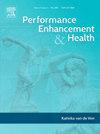Integrative self-regulation model for sport and exercise: Theory and implications for comprehensive training
IF 3.7
Q2 HOSPITALITY, LEISURE, SPORT & TOURISM
引用次数: 0
Abstract
Self-regulation is essential in sport and exercise, enabling athletes to manage emotions, motivation, and performance under pressure. However, research remains fragmented, often isolating aspects such as self-control, coping, and emotion regulation without integrating them into a cohesive framework. This paper introduces the Integrative Self-Regulation Model for Sport and Exercise, which unifies these processes to provide a structured yet adaptable approach to self-regulation training. The model consists of four core components: self-awareness and motivation for change, strategy selection, self-regulatory behaviours, and mental control, emphasizing the ability to regulate self-regulation by continuously monitoring and refining strategies. Despite its importance, self-regulation is prone to failure. Excessive self-awareness can lead to over-analysis and negative self-judgment, poor strategy selection may result in maladaptive coping, and overuse of mental control can cause cognitive fatigue. These pitfalls highlight the need for systematic training to develop adaptive, flexible, and context-sensitive strategies. To bridge theory and practice, the article presents a comprehensive checklist for self-regulation training and suggests evidence-based methods aligned with different aspects of the model. It offers a conceptual framework for studying self-regulation in sport and exercise, guiding both research and applied interventions to optimize performance and well-being.
运动与锻炼的综合自我调节模型:理论与综合训练的启示
自我调节在运动和锻炼中是必不可少的,它使运动员能够在压力下管理情绪、动力和表现。然而,研究仍然是碎片化的,往往孤立的方面,如自我控制,应对和情绪调节没有整合到一个有凝聚力的框架。本文介绍了运动和锻炼的综合自我调节模型,该模型将这些过程统一起来,提供了一种结构化但适应性强的自我调节训练方法。该模型由四个核心部分组成:自我意识和改变动机、策略选择、自我调节行为和精神控制,强调通过持续监测和改进策略来调节自我调节的能力。尽管自律很重要,但它很容易失败。过度的自我意识会导致过度分析和消极的自我判断,糟糕的策略选择会导致不适应的应对,过度使用精神控制会导致认知疲劳。这些陷阱突出了系统培训的必要性,以开发适应性强、灵活和环境敏感的策略。为了将理论与实践相结合,本文提出了一份全面的自我调节培训清单,并提出了与该模型的不同方面相一致的循证方法。它为研究运动和锻炼中的自我调节提供了一个概念框架,指导研究和应用干预措施,以优化表现和健康。
本文章由计算机程序翻译,如有差异,请以英文原文为准。
求助全文
约1分钟内获得全文
求助全文
来源期刊

Performance enhancement and health
Social Sciences-Health (social science)
CiteScore
4.70
自引率
0.00%
发文量
27
审稿时长
57 days
 求助内容:
求助内容: 应助结果提醒方式:
应助结果提醒方式:


